Before we answer the bigger question, let’s go to the basics
What Does Organic Mean?
Organic is basically a holistic way of production which takes care of the soil health as well as the plant health. Legally by Law, it means that the Farms which grow organic don’t use Synthetic Pesticides, herbicides or Fertilizers. So anything that these farms produce has to be grown naturally.
Why is organic important?
When we look at the Environmental Impact that we as humans have on the earth as a whole, we can notice that agriculture, farming and conventional production of food like the modern chemical induced agricultural processes.
How do you identify if your food is organic?
The organic standards describe the specific requirements that must be verified by a USDA-accredited certifying agent before products can be labeled USDA organic. Overall, organic operations must demonstrate that they are protecting natural resources, conserving biodiversity, and using only approved substances. The organic standards are captured in the Organic Food Production Act, USDA organic regulations, and the National Organic Program Handbook.
Is Organic Food More Nutritious?
The short answer to your question is a qualified “Yes.” Until recently, we didn’t have much evidence suggesting that organic foods offer a nutritional advantage. However, three analyses – two published in 2016 and the other in 2014 – found that some organic foods are nutritionally superior to conventional ones. Click here to read more about the studies.
Foods that you should Always consume Organic?
So Now that we understand the basics lets dive a little deeper to understand what you need to do in a store when you are out shopping for groceries. This is one major dilemma we can all relate to “Should I buy organic or conventional?”.
Each year the Environmental Working Group releases its annual “dirty dozen list” which is basically a list of foods that one should always, whenever possible, buy organic. This is done by analyzing departments of agriculture, Data about pesticide residue and ranks the food based on how much pesticide residue they have. So here is a look at some of the products that you must always buy Organic.
Strawberries
 Strawberries topped this year’s list of fruits and vegetables most contaminated with pesticides. According to the Environmental Working Group, there are 300 pounds of pesticides applied to each acre of conventional strawberries. If you’re concerned about pesticides, consider buying organic.
Strawberries topped this year’s list of fruits and vegetables most contaminated with pesticides. According to the Environmental Working Group, there are 300 pounds of pesticides applied to each acre of conventional strawberries. If you’re concerned about pesticides, consider buying organic.
Apples
 Apples consistently rank the top of the list almost every year with more than 45 different pesticides detected on apples. This is mainly because fungus and Insects threaten farmers to spray various chemicals on their Apple Orchards. And not surprisingly the pesticide residue can be found even in apple juices
Apples consistently rank the top of the list almost every year with more than 45 different pesticides detected on apples. This is mainly because fungus and Insects threaten farmers to spray various chemicals on their Apple Orchards. And not surprisingly the pesticide residue can be found even in apple juices
Nectarines
Every sample of imported nectarines tested positive for pesticide residues, the USDA found, and the average imported nectarine contained more pesticides by weight, than any other food.
Bell peppers
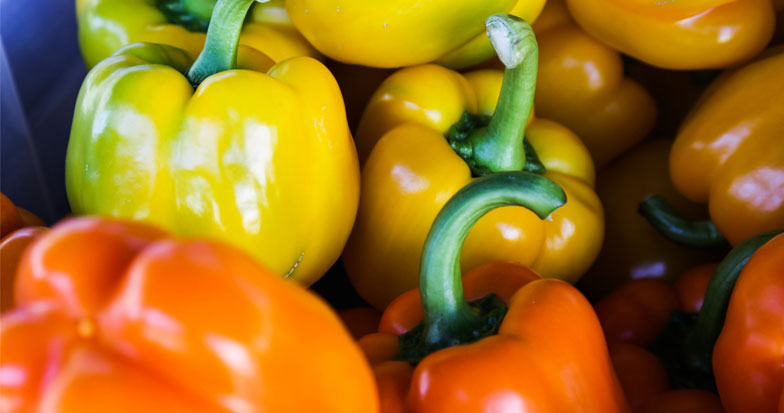 As a category, 88 different pesticides were found on sweet bell peppers, the highest of any vegetable. A single bell pepper tested positive for 15 different pesticide residues, the highest of any single sample.
As a category, 88 different pesticides were found on sweet bell peppers, the highest of any vegetable. A single bell pepper tested positive for 15 different pesticide residues, the highest of any single sample.
Leafy greens
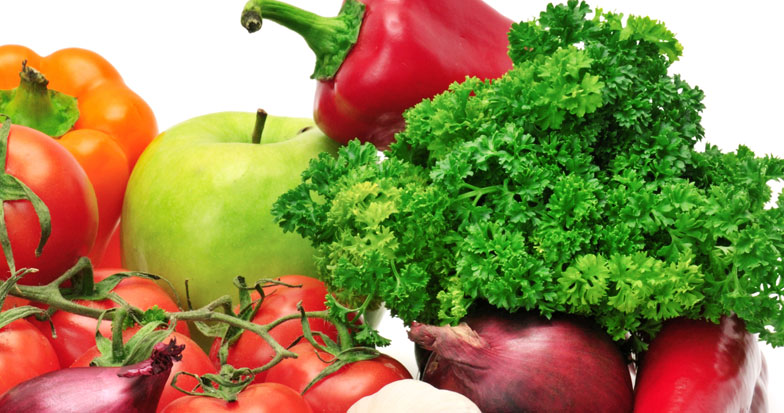 The most toxic class of pesticides—called organophosphates—are commonly used on leafy greens like kale and collards. “These are chemicals that were originally intended for chemical warfare,” says Lunder, who adds that their use is highly restricted in agriculture. Still, studies continue to find that even low-level exposure to organophosphates can seriously interfere with your hormones and lead to lower IQs among children exposed to them through food.
The most toxic class of pesticides—called organophosphates—are commonly used on leafy greens like kale and collards. “These are chemicals that were originally intended for chemical warfare,” says Lunder, who adds that their use is highly restricted in agriculture. Still, studies continue to find that even low-level exposure to organophosphates can seriously interfere with your hormones and lead to lower IQs among children exposed to them through food.
Grapes
 More pesticides are used on grapes than any other fruit. Combined, the various samples of grapes contained 64 different pesticides.
More pesticides are used on grapes than any other fruit. Combined, the various samples of grapes contained 64 different pesticides.
Cereal
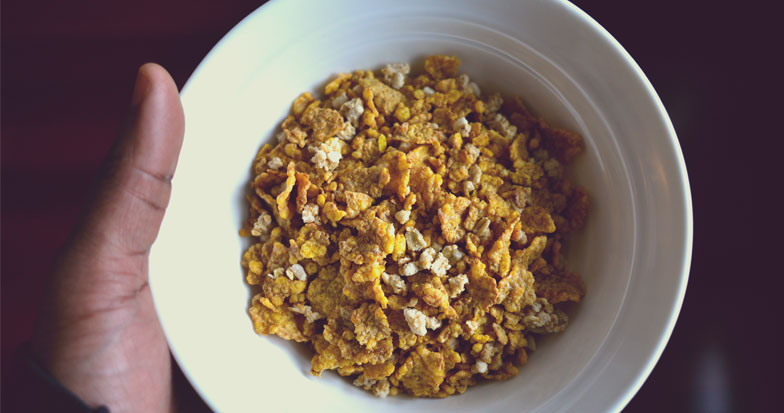 Among the ingredients most likely show up in your cereal bowl include wheat, barley, corn, corn syrup, canola oil, and sugar—all ingredients likely to be genetically modified or doused in pesticides. Not even “natural” cereal will cut it, according to a report by the nonprofit Cornucopia Institute. “Natural” means the food contains no artificial ingredients, such as preservatives. However, the farms and manufacturing plants that produce those ingredients aren’t prohibited from using pesticides and genetically engineered crops.
Among the ingredients most likely show up in your cereal bowl include wheat, barley, corn, corn syrup, canola oil, and sugar—all ingredients likely to be genetically modified or doused in pesticides. Not even “natural” cereal will cut it, according to a report by the nonprofit Cornucopia Institute. “Natural” means the food contains no artificial ingredients, such as preservatives. However, the farms and manufacturing plants that produce those ingredients aren’t prohibited from using pesticides and genetically engineered crops.
Milk
 While you’re at it, pour some organic milk over your organic cereal. Non-organic dairy cows are often treated with the genetically engineered hormones called recombinant bovine growth hormone (rBGH) or recombinant bovine somatotropin (rBST). They’re injected into the cows to increase milk production. According to the American Cancer Society, milk from cows treated with rBGH has higher levels of IGF-1, a hormone that stimulates cell growth. Some studies suggest it could contribute to prostate, breast, colorectal, and other cancers in humans.
While you’re at it, pour some organic milk over your organic cereal. Non-organic dairy cows are often treated with the genetically engineered hormones called recombinant bovine growth hormone (rBGH) or recombinant bovine somatotropin (rBST). They’re injected into the cows to increase milk production. According to the American Cancer Society, milk from cows treated with rBGH has higher levels of IGF-1, a hormone that stimulates cell growth. Some studies suggest it could contribute to prostate, breast, colorectal, and other cancers in humans.
Cookies
 Although organic cookies don’t always contain fewer calories or fat than non-organic cookies, you’re avoiding several genetically modified ingredients, including sugar from sugar beets and corn that’s used in high-fructose corn syrup
Although organic cookies don’t always contain fewer calories or fat than non-organic cookies, you’re avoiding several genetically modified ingredients, including sugar from sugar beets and corn that’s used in high-fructose corn syrup
Flour
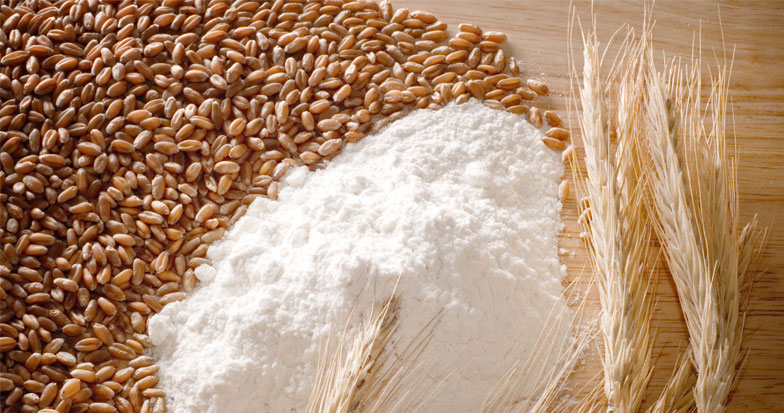 Tests by the Ministry of Agriculture Fisheries and Food (MAFF) in 2014 found 44 percent of all bread samples contained pesticide residues. One herbicide called glyphosate is. Flour is probably the most common cereal available all over the world and is in even higher demand in recent years due to its abundant health benefits. It is not enough that a wheat from which a flour is milled be grown without the use of synthetic fertilizers or pesticides while it is in the field. The field itself must have been free of chemical applications for three years, and there must be a long-term soil improvement plan in process for the field. Organic flour costs more than conventional flour. Part of this increased cost is due to the actual increased cost of production, both of organic wheat and of milled flour. As a rule, more person hours are required to grow a ton of organic wheat than a ton of conventional wheat. It takes more time to care for the soil than to run a factory farm. Purchased organic soil supplements are more expensive than NPK (nitrogen-phosphorus-potassium) fertilizer.
Tests by the Ministry of Agriculture Fisheries and Food (MAFF) in 2014 found 44 percent of all bread samples contained pesticide residues. One herbicide called glyphosate is. Flour is probably the most common cereal available all over the world and is in even higher demand in recent years due to its abundant health benefits. It is not enough that a wheat from which a flour is milled be grown without the use of synthetic fertilizers or pesticides while it is in the field. The field itself must have been free of chemical applications for three years, and there must be a long-term soil improvement plan in process for the field. Organic flour costs more than conventional flour. Part of this increased cost is due to the actual increased cost of production, both of organic wheat and of milled flour. As a rule, more person hours are required to grow a ton of organic wheat than a ton of conventional wheat. It takes more time to care for the soil than to run a factory farm. Purchased organic soil supplements are more expensive than NPK (nitrogen-phosphorus-potassium) fertilizer.
Dals
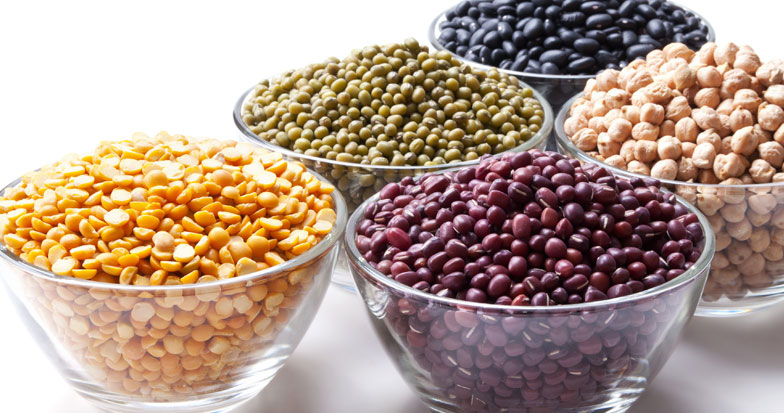 Organic Dals taste much better than conventional Dal. Organic Dals are grown without using pesticides & GMOs. They are not polished and hence all nutrients are preserved. They are grown in areas which have traditionally grown the best dals you could get. These are the following places in India which are famous for growing the best Organic Dals in the country – Maharashtra, Madhya Pradesh & Karnataka.
Organic Dals taste much better than conventional Dal. Organic Dals are grown without using pesticides & GMOs. They are not polished and hence all nutrients are preserved. They are grown in areas which have traditionally grown the best dals you could get. These are the following places in India which are famous for growing the best Organic Dals in the country – Maharashtra, Madhya Pradesh & Karnataka.
References
- What is organic – http://www.eatingwell.com/video/6920/organic-vs-nonorganic-vegetables/
- Why is organic important – http://www.eatingwell.com/video/6920/organic-vs-nonorganic-vegetables/
- How do you identify if your food is organic –
https://www.ams.usda.gov/grades-standards/organic-standards
http://uscode.house.gov/view.xhtml?path=/prelim@title7/chapter94&edition=prelim
http://www.ecfr.gov/cgi-bin/text-idx?c=ecfr&sid=3f34f4c22f9aa8e6d9864cc2683cea02&tpl=/ecfrbrowse/Title07/7cfr205_main_02.tpl
https://www.ams.usda.gov/rules-regulations/organic/handbook - Is Organic Food More Nutritious –
http://www.drweil.com/diet-nutrition/nutrition/is-organic-food-more-nutritious/ - Foods that you should Always consume Organic –
http://www.livestrong.com/slideshow/1004202-20-foods-always-buy-organic-even-youre-budget/#slide=1
http://www.prevention.com/food/healthy-eating-tips/foods-always-buy-organic
http://www.prevention.com/food/healthy-eating-tips/10-packaged-foods-you-should-always-buy-organic/slide/4
http://www.goodhousekeeping.com/food-recipes/healthy/news/g168/dirty-dozen-foods/?slide=2
http://www.eatingwell.com/food_news_origins/organic_natural/dirty_dozen_plus_14_foods_you_should_buy_organic
http://www.theartisan.net/Organic_Flour.htm
http://www.drweil.com/diet-nutrition/anti-inflammatory-diet-pyramid/foods-you-should-always-buy-organic/
http://www.eatingwell.com/food_news_origins/organic_natural/why_buy_organic_7_questions_about_organics_answered?page=2



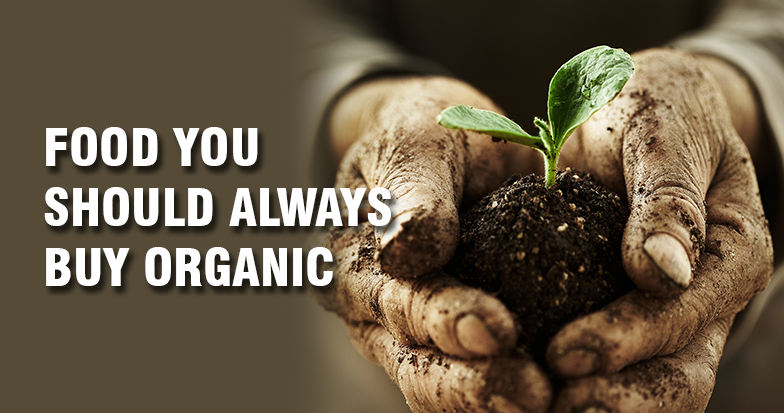
Recent Comments